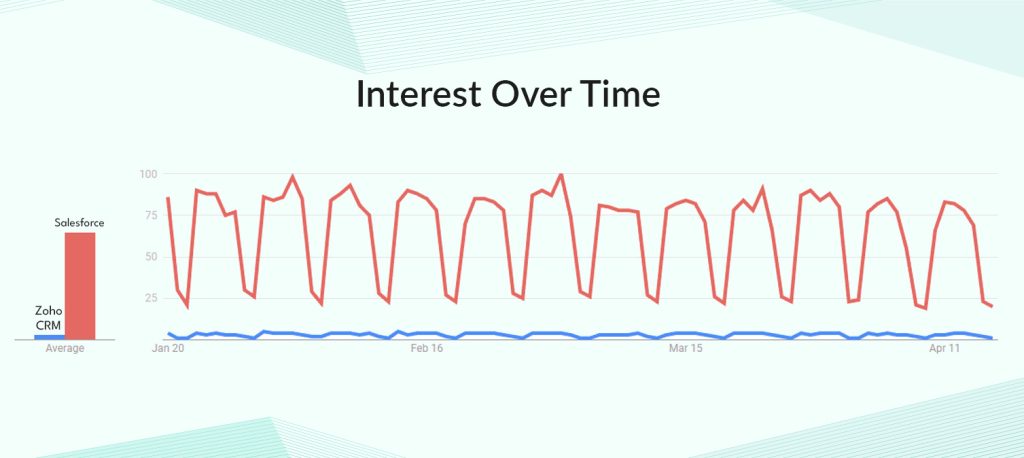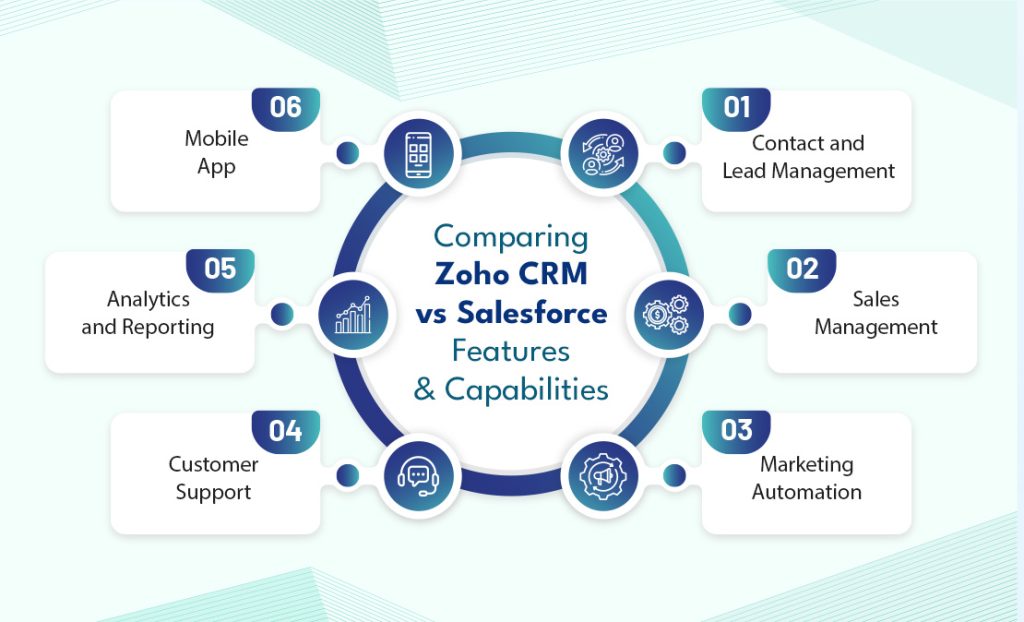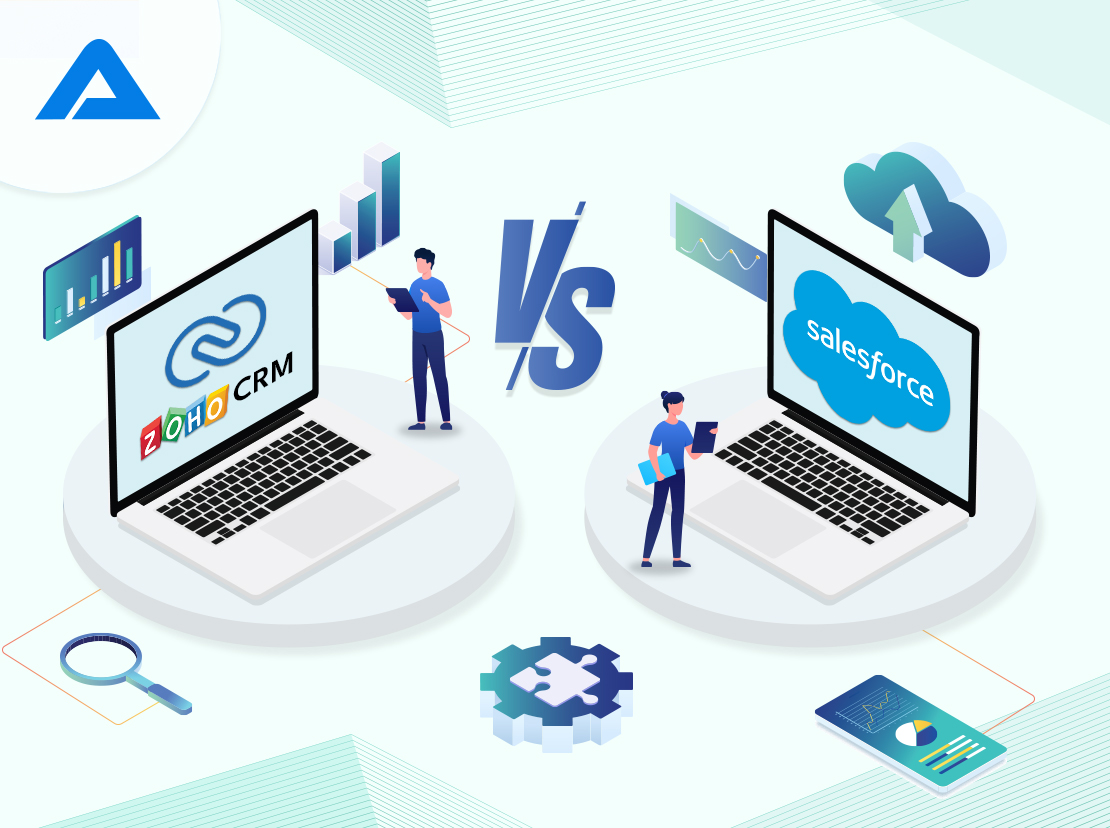Introduction: What is a CRM and Why Does Your Business Need One?
Customer Relationship Management (CRM) refers to business strategies, processes, and technologies to manage customer interactions and relationships. It involves collecting and analyzing customer data to understand their behaviour, preferences, and needs and using that information to provide better products, services, and personalized experiences.
In today’s highly competitive business environment, it’s more important than ever for companies to focus on building solid relationships with their customers. That’s where a CRM system comes in. By implementing a CRM system, businesses can streamline their sales, marketing, and customer service processes, ultimately improving their bottom line.
One of the primary benefits of a CRM system is that it allows businesses to centralize their customer data. Instead of scattering information across various departments and systems, a CRM system consolidates all customer data into a single database. This makes it easier for businesses to track customer interactions and behaviour and identify opportunities for upselling and cross-selling.

What is Zoho CRM
Zoho CRM is a cloud-based customer relationship management (CRM) software developed by Zoho Corporation, a software company based in India. It is designed to help businesses manage their sales, marketing, customer support, and other customer-related activities more efficiently.
Zoho CRM offers many features and functionalities, including contact and lead management, sales forecasting, email marketing, social media integration, analytics, and reporting. The software also provides a customizable dashboard that allows users to track key performance indicators (KPIs) and metrics, such as sales pipeline, revenue, and customer engagement.
Zoho CRM is known for its ease of use, flexibility, and affordability compared to other CRM solutions. It is available in multiple editions, including a free edition for small businesses with limited needs and paid editions with more advanced features and capabilities.
What is Salesforce CRM
Salesforce CRM (Customer Relationship Management) is a cloud-based software platform designed to help businesses manage their customer relationships, sales, marketing, and service activities. It was founded in 1999 by Marc Benioff and is headquartered in San Francisco, California.
Salesforce CRM offers various features and functionalities, including lead and opportunity management, contact and account management, forecasting, analytics, and reporting. It also provides a customizable dashboard that allows users to track key performance indicators (KPIs) and metrics, such as sales pipeline, revenue, and customer engagement.
One of the critical strengths of Salesforce CRM is its integration capabilities with other third-party software and platforms. It has a large ecosystem of third-party apps and tools available on its AppExchange marketplace, which allows businesses to extend the functionality of Salesforce CRM to meet their specific needs.
Salesforce CRM is also known for its mobile app, which allows users to access and manage customer data on the go. It also focuses on artificial intelligence (AI) and machine learning (ML) technologies to help businesses better understand and engage with customers.
Related Article: The Ultimate Guide to Zoho CRM and How It Can Help Your Business Succeed
Comparing Zoho CRM vs Salesforce Features & Capabilities
Zoho CRM and Salesforce are the most popular options when choosing the right CRM software for your business. While both platforms offer a range of features and capabilities to help businesses manage their customer relationships, there are some key differences to consider. Comparing the features and capabilities of Zoho CRM and Salesforce to help you make an informed decision.

Contact and Lead Management:
Both Zoho CRM and Salesforce provide tools for managing contacts and leads. Zoho CRM allows businesses to track customer interactions, segment their database, and manage their sales pipeline. Salesforce offers lead and opportunity tracking, account and contact, and campaign management. However, Salesforce has more advanced features for managing leads and opportunities, such as automated lead scoring and assignment rules.
Sales Management:
Zoho CRM and Salesforce provide tools for managing sales pipelines, forecasting, and team collaboration. Zoho CRM offers territory management, deal tracking, and sales forecasting features. Salesforce provides similar features, advanced forecasting tools, and sales automation capabilities.
Marketing Automation:
Zoho CRM and Salesforce offer automation features like email marketing, lead nurturing, social media integration, and campaign management. However, Salesforce’s marketing automation capabilities are more advanced and comprehensive, offering account-based marketing, lead scoring, and AI-powered marketing automation features.
Customer Support:
Zoho CRM and Salesforce provide tools for managing customer support activities such as ticket management, knowledge base, and live chat. However, Salesforce offers more advanced features for managing customer support, such as case management, self-service portals, and omnichannel support.
Analytics and Reporting:
Zoho CRM and Salesforce provide analytics and reporting features to help businesses track and analyze their sales, marketing, and customer service activities. Zoho CRM offers basic reporting features such as sales pipeline reports and activity reports. In contrast, Salesforce offers more advanced reporting features such as customizable dashboards, forecasting reports, and data visualization tools.
Mobile App:
Zoho CRM and Salesforce offer mobile apps for iOS and Android devices, allowing users to access customer data on the go. Zoho CRM’s mobile app is user-friendly and provides important contact and deal management features. In contrast, Salesforce’s mobile app offers more advanced features such as real-time notifications, mobile dashboards, and AI-powered insights.
Zoho CRM and Salesforce offer various features and capabilities to help businesses manage customer relationships, sales, marketing, and customer support activities. While Zoho CRM may be a more affordable and user-friendly option for small businesses with limited needs, Salesforce may be a better choice for larger businesses with more advanced requirements. It’s important to carefully evaluate your business needs and compare the features and capabilities of each platform before making a decision.
Which User Interface Works Better For You? Zoho or Salesforce
The user interface (UI) is an essential aspect of any software application, as it can impact the platform’s ease of use and efficiency. Regarding Zoho CRM vs. Salesforce, both platforms offer different UI designs and navigation options that can suit various business needs.
Zoho CRM has a more modern and intuitive UI with a cleaner and more minimalist design. The UI is visually appealing, with larger icons and an easy-to-use navigation menu that allows users to access features quickly. Zoho also offers a customizable UI, where users can create custom dashboards and personalize their workspace to their needs. This makes it easier for businesses to organize their work and streamline their daily operations.
On the other hand, Salesforce’s UI is more complex and can take more time to learn. The platform has a lot of features and customization options, which can make it overwhelming for new users. However, Salesforce’s UI is highly customizable, allowing users to create custom pages, fields, and workflows to fit their business needs. This customization level can benefit businesses that require a more tailored CRM solution.
In terms of user preferences, it depends on the individual needs and preferences of the business. Zoho’s UI may suit businesses that want a more straightforward and intuitive interface. At the same time, Salesforce’s UI may be more suitable for businesses that require a more customized solution with advanced features.
Ultimately, businesses should evaluate their specific needs and try out demos of both platforms to determine which UI and navigation system works best for them.
What Are The Advantages & Disadvantages of Using Zoho CRM or Salesforce?
Both Zoho CRM and Salesforce have their advantages and disadvantages. Here is a breakdown of each:
Advantages of Zoho CRM:
- Affordable Pricing: Zoho CRM offers affordable pricing plans compared to Salesforce, making it more accessible for small businesses and startups.
- User-Friendly Interface: Zoho CRM has a user-friendly interface that is easy to navigate, making it ideal for users with limited CRM experience.
- Customization: Zoho CRM offers a wide range of customization options allowing users to tailor the platform to their business needs.
- Integration: Zoho CRM integrates with various third-party applications, making connecting with other business tools easy.
- Mobile App: Zoho CRM has a mobile app available for iOS and Android devices, allowing users to access their data anywhere.
Disadvantages of Zoho CRM:
- Limited Features: Zoho CRM may not have as many features and capabilities as Salesforce, making it less suitable for larger businesses with more complex needs.
- Support: While Zoho CRM offers support, some users have reported that the level of support provided is not always satisfactory.
Advantages of Salesforce:
- Advanced Features: Salesforce has more advanced features and capabilities than Zoho CRM, ideal for larger businesses with complex needs.
- Customization: Like Zoho CRM, Salesforce offers various customization options, allowing users to tailor the platform to their business needs.
- Integration: Salesforce integrates with various third-party applications, making connecting with other business tools easy.
- Support: Salesforce offers excellent customer support with various support options.
- Mobile App: Salesforce has a mobile app available for iOS and Android devices, allowing users to access their data anywhere.
Disadvantages of Salesforce:
- Expensive Pricing: Salesforce is more costly than Zoho CRM, making it less accessible for small businesses and startups.
- Steep Learning Curve: Salesforce has a steep learning curve, making it difficult for users with limited CRM experience to get started.
- UI Complexity: Salesforce has a complex UI that can be overwhelming for new users, making it less user-friendly than Zoho CRM.
Zoho CRM and Salesforce offer their own advantages and disadvantages, and the choice of which platform to use ultimately depends on the specific needs and preferences of the business.
Comparing Pricing between Zoho and Salesforce
Regarding pricing, there are significant differences between Zoho and Salesforce.
Zoho CRM offers a range of pricing plans starting at $14 per user per month for the Standard plan, which includes features such as sales forecasting, workflow automation, and reports and dashboards. The Professional plan is priced at $23 per user per month and includes additional features such as inventory management and mass email. The Enterprise plan costs $40 per user per month and includes features such as role-based security and custom modules. Finally, the Ultimate plan is priced at $52 per user per month and includes advanced features such as Zoho CRM’s AI-powered sales assistant, Zia.
On the other hand, Salesforce offers a range of pricing plans starting at $25 per user per month for the Essentials plan, which includes basic sales and customer support features. The Salesforce Professional plan costs $75 per user per month and includes additional features such as marketing automation and web conferencing. The Enterprise plan costs $150 per user per month and includes workflow automation and custom app development features. The unlimited plan is priced at $300 per user per month and includes advanced features such as unlimited customization and premium customer support.
In addition to the above pricing plans, Zoho CRM and Salesforce offer additional features and add-ons that can be purchased separately. These include email marketing, social media integration, and advanced analytics.
Overall, Zoho CRM is generally more affordable than Salesforce, making it a more accessible option for small businesses and startups. However, Salesforce offers more advanced features and capabilities, which can benefit larger businesses with more complex needs. When choosing between Zoho and Salesforce, businesses should evaluate their specific needs and budget to determine which platform best fits them.
Related Article: Zoho Inventory: One-stop Solution for Manufacturers
Technical Support & Resources Available from Both Platforms
Technical support and resources are important factors to consider when choosing a CRM platform. They can help businesses overcome technical issues and maximize the platform’s features and capabilities. Here is a comparison of the technical support and resources available from Zoho CRM and Salesforce:
Zoho CRM:
Zoho CRM offers a range of support options, including email support, phone support, live chat support, and an extensive knowledge base. The knowledge base includes articles, tutorials, and video guides that cover a wide range of topics, from getting started with the platform to more advanced features such as automation and customization.
In addition to the support options, Zoho CRM offers a community forum where users can connect with other users and share their experiences and best practices. The community forum can be an excellent resource for businesses looking to learn from other users and get advice on optimizing their platform use.
Salesforce:
Salesforce offers a range of support options, including phone support, email support, and live chat support. Salesforce also has an extensive knowledge base, including articles, tutorials, and video guides covering various topics.
In addition to the support options, Salesforce offers Trailhead, a learning platform that provides interactive online training and certification programs. The Trailhead includes various courses covering sales, marketing, customer service and technical courses for developers and administrators.
Salesforce also offers a community forum where users can connect with other users, ask questions, and share their experiences and best practices. The community forum can be an excellent resource for businesses looking to learn from other users and get advice on optimizing their platform use.
Overall, both Zoho CRM and Salesforce offer a range of technical support options and resources, including email and phone support, live chat support, an extensive knowledge base, and community forums. Salesforce also offers Trailhead, a comprehensive learning platform that can be a valuable resource for businesses looking to improve their technical skills and knowledge. Businesses should evaluate their specific needs and preferences when choosing between the two platforms to determine which offers the best technical support and resources.
Conclusion
Choosing the right CRM platform for your business can be challenging, as both Zoho CRM and Salesforce CRM offer unique features and capabilities that can benefit businesses of all sizes. When deciding between Zoho and Salesforce, several factors must be considered, including the platform’s features and capabilities, user interface, pricing, technical support and resources, and overall suitability for your business needs.
Zoho CRM offers an affordable and easy-to-use platform ideal for small businesses and startups. Zoho CRM’s intuitive user interface and robust features and capabilities, such as automation and analytics, make it an excellent choice for businesses looking for a simple, all-in-one CRM solution. Zoho CRM also offers outstanding technical support and resources, including phone and email support, live chat support, and a comprehensive knowledge base.
On the other hand, Salesforce CRM is a more complex and powerful platform ideal for larger businesses with more complex needs. Salesforce CRM offers advanced features such as custom app development, workflow automation, and marketing automation.
Salesforce CRM’s user interface can be more challenging to navigate than Zoho CRM, but it offers more outstanding customization options and flexibility. Salesforce also provides excellent technical support and resources, including phone and email support, live chat support, and the Trailhead learning platform.
Ultimately, the decision between Zoho CRM and Salesforce CRM comes down to your business needs and budget. If you are a small business or startup looking for an affordable, easy-to-use CRM platform, Zoho CRM is an excellent choice. If you are a more significant business with more complex needs and a larger budget, Salesforce CRM is the way to go. In either case, both platforms offer a range of features and capabilities that can help your business streamline its sales, marketing, and customer support processes, so take the time to evaluate your specific needs and choose the best CRM platform for your business.
A Zoho consulting company specializing in helping businesses get the most out of their Zoho CRM platform. These companies offer various services, including implementation and integration, customization, training, and ongoing support. They work with businesses to understand their unique needs and requirements and then develop and implement solutions that help streamline sales, marketing, and customer support processes. A Zoho consulting company can also provide valuable insights and recommendations on optimizing and improving the platform’s use, ensuring businesses maximise their investment.
Frequently Asked Questions
Zoho CRM and Salesforce are popular CRM platforms designed to help businesses manage customer relationships effectively. They offer various features to streamline sales, marketing, and customer service processes.
Zoho CRM generally offers more affordable pricing plans, making it suitable for small to mid-sized businesses. Salesforce, on the other hand, tends to be more feature-rich but can be costlier, especially for larger enterprises.
Both Zoho CRM and Salesforce offer features for lead management, opportunity tracking, sales forecasting, and automation. Salesforce, being more extensive, might have additional advanced features.
Both platforms provide marketing automation tools to streamline marketing campaigns, email marketing, and lead nurturing. Salesforce Marketing Cloud is a dedicated solution, while Zoho CRM integrates with Zoho MarketingHub.
Yes, both platforms offer customization options. Salesforce is known for its high level of customization, suitable for complex business processes. Zoho CRM provides flexibility for customization to meet various business requirements.
Zoho CRM and Salesforce offer customer support features such as case management, ticketing systems, and knowledge bases. Salesforce Service Cloud provides a comprehensive solution for customer service.
Zoho CRM is known for its user-friendly interface, making it accessible for businesses of all sizes. Salesforce has a steeper learning curve due to its extensive features but offers a robust user experience once mastered.
Yes, both platforms support integrations with a wide range of third-party apps and services. Salesforce has a larger ecosystem and marketplace, while Zoho CRM offers seamless integrations with other Zoho applications.
Consider factors such as your budget, business size, required features, customization needs, and user preferences. Conduct a thorough evaluation of your business processes to determine which CRM aligns better with your specific requirements.

